|
'Sonnet XXIX' by William Shakespeare When in disgrace with fortune and men's eyes I all alone beweep my outcast state, And trouble deaf heaven with my bootless cries, And look upon myself and curse my fate, Wishing me like to one more rich in hope, Featur'd like him, like him with friends possessed, Desiring this man's art and that man's scope, With what I most enjoy contented least; Yet, in these thoughts myself almost despising, Haply I think on thee—and then my state (Like to the lark at break of day arising From sullen earth) sings hymns at heaven's gate: For thy sweet love remember'd such wealth brings That then I scorn to change my state with kings. Bernard Reynolds (b. 1952) is an Irish landscape painter. His painting is of the sun rising over the Loughcrew Hills near Oldcastle, County Meath.
William Shakespeare (1564–1616) was an English playright, poet and actor.
0 Comments
Anna Osmaston What ecstasy is in this night! A tingling thrilling joy doth fight Within me 'gainst a sullen pain That knows I must so soon again Return to earth. E'en now the vision fades Beyond my frantic grasp. The shades Encompass it once more. O give me back Heaven's glory. Must I live Through interminable days of murky fog, Groping and struggling in the bog Of depression, doubt and dark despair, Gasping for want of purer air Till the sudden moment come once more When the arrows pierce my inmost core Shattering doubt and, in its wake, Bringing wisdom and joy to slake My parched throat? A voice through tumult breathes, "Hold on, You were born to fight: there's a war to be won. Sorrow and pain and sweat and toil Shall all be yours; but there'll be a foil 'Gainst all of this, for I will be there E'en when you sink 'neath the waves of despair, Or grapple with doubt in the blackness of night; When you're tempted to lie down and give up the fight; When the darkness is rent with your spirit's cry, I will answer you, I will be by. Thank God that you can feel pain: It is your privilege; for you again The bells shall ring upon the shores Where everlasting joy shall be yours-- No fading vision as before, But joy undreamed of evermore." Anna Osmaston (1922–2021) was a WWII veteran and a beloved wife, mother and grandmother.
'Starlight Night' was written at Anna's home (Pensbury House, Shaftesbury, Dorset) in November 1941, when she had a few days’ leave from the Army. Anna's poem 'Carefree' was published in Foreshadow in August 2021. 'Heaven and Hell' by Francis Thompson 'Tis said there were no thought of hell, Save hell were taught; that there should be A Heaven for all's self-credible. Not so the thing appears to me. 'Tis Heaven that lies beyond our sights, And hell too possible that proves; For all can feel the God that smites, But ah, how few the God that loves! Rembrandt Harmenszoon van Rijn (1606–1669) was a Dutch painter, printmaker and draughtsman.
Francis Thompson (1859–1907) was an English and Catholic poet. After clicking 'Play', please wait a few moments for the podcast to load. You can also listen on Spotify, Apple, Google, Podomatic, Player FM and Deezer. Listen to other Forecasts here. Through conversations, non-fiction, poetry and music, this Forecast explores various dimensions of Christian worship. The main part of the episode is an interview with Will Shine about his studying worship, theology and the arts at Fuller Theological Seminary, California. Host: Josh Seligman Outline of today's Forecast, including links
'Two Things Have I Heard' by Josh Seligman A non-fiction piece about worship (from today's Forecast) My toes, legs, and knees were shaking. Although I was standing on warm stone, I felt the wind could have lifted my feet and poured me over the edge. In the distance, red tables and towers of stone stood crooked over the Arizonan desert. Twenty feet below, the bright river was foaming and hungry. 'Do we go head first?' I said. 'No, you’ll want to pencil it.' Dustin held out two fingers pushed together pointing down. We counted from three and jumped. Like a pencil, I thought. My feet smacked blue, and I slipped into the shadows of the Colorado River, the waters surging around me, first cold and then warm. I felt like Jonah must have felt just before being hurled out of the great fish. I pushed my arms down and surfaced, we made some kind of sound like laughter, and the wind was strong against our faces. * Ten years ago, I began attending a Quaker graduate school. I hardly knew anything about Quakerism before I studied there; my main reason for going was because they had a unique programme in writing as a form of Christian ministry. However, it was fascinating to learn about Quaker theology and especially how this played out in their worship. Quakers believe the light of God shines in all people, and if we listen with discernment, we can hear God speaking to us. Quakers listen together through a form of worship called 'open' or 'waiting worship', in which a gathering of people sits in silence waiting for the Spirit. When someone believes God is giving them a message for the group, they are encouraged to stand and speak. During my first semester, when I began sitting in waiting worship, memories of jumping into the Colorado River would come to me. Only now, the river I was looking into during worship was darkness and silence. Although I tried listening for God’s voice, I would often wonder what God sounded like. For instance, how could I distinguish between God’s words and my own thoughts? Later that semester, I read a story that helped. It’s about when the prophet Elijah heard God’s voice. Then a great and powerful wind tore the mountains apart and shattered the rocks before the LORD, but the LORD was not in the wind. After the wind there was an earthquake, but the LORD was not in the earthquake. After the earthquake came a fire, but the LORD was not in the fire. And after the fire came a gentle whisper. When Elijah heard it, he pulled his cloak over his face and went out and stood at the mouth of the cave. (1 Kings 19:11–13, NIV) Once during waiting worship, I thought I heard God speak. A paraphrase of a verse from Psalm 62 swirled in my mind: 'One thing God has spoken, two things have I heard: That you, O Lord, are strong, and that you, O Lord, are loving.' Is this God? I wondered. Should I stand and speak this? I reasoned that among the three others in the room, probably none of them needed to hear it. During my inner wrestling, someone walked out of the room, and then the prompting left me. I felt like Jonah might have felt when he was swallowed by the great fish. * In the ten years since then, I’ve participated in a variety of other forms of worship. I now worship regularly with Anglicans and Eastern Orthodox Christians. I’m thankful for what I experienced among Quakers of contemplation and silence – and I no longer have flashbacks in the middle of services of cliff-jumping into rivers. But if I did, I imagine I would recall the events surrounding the second time I ever cliff-jumped. It was the summer after visiting the Colorado River. I was in Kansas celebrating a wedding, and for the bachelor party, about eleven of us drove to Two Buttes, Colorado, where apparently we were going to jump off a cliff. 'There's different ledges', said Erik as he drove a carful of us between corn fields into the sunset. 'You can jump it from thirty feet, forty feet, or even sixty feet. But we'll only jump from forty feet.' Someone asked about the possibility of rocks. 'An underwater current connects the lagoon to the reservoir, so there’s no bottom', Erik said. Tall trees loomed over the campground. At the end, shadowed by cliffs, black ripples shimmered beneath a large moon. One by one, the guys swam to the other side, where they heaved themselves onto a bank, climbed a cliff, and jumped into the darkness. I couldn’t see them; I could only hear feet scraping dirt, a stretch of silence, and then a deep splash. Afterwards they yelped to let us know they made it. Along with a few others, I didn’t jump the cliff that night (I did the next morning, though). One guy’s ankle was sprained, making it risky. Another said, 'There’s no way I’m jumping off that.' As Quakers say, Friend spoke my mind. When we returned to the campground, Erik invited us to climb the nearby Two Buttes. We all drove a few miles away and parked beside a field of shrubs and rocks. Two silhouettes of stony, sandy pyramids rose skyward. We hiked around cacti and clambered over boulders. When we reached the top, we each found a spot on which to rest. Some guys shouted. The land stretched before us like the ocean. We could barely see our cars parked below, beside the wiry road. Beyond them, red lights from steel towers pulsed. Up there, the wind was almost as strong as water. At one point, I stood with my arms sticking out, leaning into the wind. Then for a few moments, we sat and stood, facing the moon and wind in silence. Josh Seligman is the founding editor of Foreshadow and a co-host of its podcast, Forecast.
'The Song Tree' by Alfred Noyes Grow, my song, like a tree, As thou hast ever grown, Since first, a wondering child, Long since, I cherished thee. It was at break of day, Well I remember it,-- The first note that I heard, A magical undertone, Sweeter than any bird --Or so it seemed to me; And my tears ran wild. This tale, this tale is true. The light was growing gray; And the rhymes ran so sweet (For I was only a child) That I knelt down to pray. Grow, my song, like a tree. Since then I have forgot A thousand dreams, but not The song that set me free, So that to thee I gave My hopes and my despairs, My boyhood's ecstasy, My manhood's prayers. In dreams I have watched thee grow, A ladder of sweet boughs, Where angels come and go, And birds keep house. In dreams, I have seen thee wave Over a distant land, And watched thy roots expand, And given my life to thee, As I would give my grave. Grow, my song, like a tree, And when I am grown old, Let me die under thee, Die to enrich thy mould; Die at thy roots, and so Help thee to grow. Make of this body and blood Thy sempiternal food. Then let some little child, Some friend I shall not see, When the great dawn is gray, Some lover I have not known, In summers far away, Sit listening under thee, And in thy rustling hear That mystical undertone, Which made my tears run wild, And made thee, oh, how dear. In the great years to be? I am proud then? Ah, not so. I have lived and died for thee. Be patient. Grow. Grow, my song, like a tree. Wassily Kandinsky (1866–1944) was a Russian painter and art theorist.
Alfred Noyes (1880–1958) was an English poet. By Josh Seligman Often goes the Christ in the stranger’s guise From a Celtic prayer of hospitality A few years ago, I worked at a night shelter, where a team of volunteers would support destitute asylum seekers and refugees by hosting them in our church building overnight. This was in partnership with the Manchester-based charity Boaz Trust. Our purpose was simple: to serve our visitors’ practical needs by providing food, a warm shower and a safe place to sleep. But they were not content to passively receive our help; many of them would ask us to join them at the table to eat with them. They wanted to learn about us and to be known and recognised as fellow people with names, stories and histories. Once, over supper, one man grabbed a jar of tahini dressing and held it up, saying almost through tears, ‘Ever since I came to the UK a few years ago, I have not eaten tahini. Eating this now brings me right back to my family.’ He was from Saudi Arabia, and I remember him most for his keen sense of humour despite his tragic circumstances. When he found out that I was married but that we didn’t have children yet, he commanded me to name our first son after him. Most of the men were Muslims, and we got used to their dietary requirements for halal meat. One man from northern Africa, however, was unusual: for several weeks he didn’t eat meat, dairy or eggs, nor did he eat anything before 3 p.m. He explained he was an Orthodox Christian and was fasting to observe of the season of Advent, a practice I hadn’t heard of before. Through meeting the men, I learned not only about other faiths, but also more about my own Christian faith. It was humbling to encounter these men who, every day, relied upon the care of others. Often while returning home from the night shelter, I would feel a mixture of things – a sense of unfairness, but also that my own humanity had somehow been deepened through my interactions with them. Jesus says that whenever we welcome a stranger, we welcome Jesus himself (Matthew 25:34–40). Although we didn’t recognise it at the time, I believe that in meeting and serving our guests, we were spending time with Christ. The men often thanked us and praised God for the food, shelter and friendship we offered, but I too must give thanks and praise to God for the blessings I have received from them. Josh Seligman is the founding editor of Foreshadow and co-host of its podcast, Forecast.
'Meeting Christ over Tahini' was published in Refugees from Eden (Wild Goose Publications, 2021). It has been republished here with the author's permission. To learn more about how to support refugees and asylum seekers in the UK, visit the Boaz Trust website. 'Envoy' by Francis Thompson Go, songs, for ended is our brief, sweet play; Go, children of the swift joy and tardy sorrow: And some are sung, and that was yesterday, And some unsung, and that may be to-morrow. Go forth; and if it be o'er stony way, Old joy can lend what newer grief must borrow: And it was sweet, and that was yesterday, And sweet is sweet, though purchasèd with sorrow. Go, songs, and come not back from your far way: And if men ask you why ye smile and sorrow, Tell them ye grieve, for your hearts know To-day, Tell them ye smile, for your eyes know To-morrow. Christian Rohlfs (1849–1938) was a German painter.
Francis Thompson (1859–1907) was an English and Catholic poet. After clicking 'Play', please wait a few moments for the podcast to load. You can also listen on Spotify, Apple, Google, Podomatic, Player FM and Deezer. Listen to other Forecasts here. Josh explores eschatology in the films Tenet and Interstellar and how the films point to the Christian hope of God's future breaking into the present. This is followed by an opinion article about climate change, an instrumental piece by Scott Stevens and two poems by Rosemary Power and Gerard Manley Hopkins that cherish the natural world. Outline of today's Forecast, including links
Quotes from today's Forecast The Birth of Christ is the eucatastrophe ('good catastrophe') of Man’s history. The Resurrection is the eucatastrophe of the story of the Incarnation. This story begins and ends in joy. It has pre-eminently the “inner consistency of reality.” There is no tale ever told that men would rather find was true, and none which so many sceptical men have accepted as true on its own merits. For the Art of it has the supremely convincing tone of Primary Art, that is, of Creation. To reject it leads either to sadness or to wrath. -- J R R Tolkien Sometimes we have no words, sometimes we do not know how to act wisely, but we can always ask God to come and be present. And we shall see how often the atmosphere changes, quarrels stop, peace comes. This is not a minor mode of intercession, although it is less spectacular than a great sacrifice. We see in it again how contemplation and action are inseparable, that Christian action is impossible without contemplation. We see also how such contemplation is not a vision of God alone, but a deep vision of everything enabling us to see its eternal meaning. Contemplation is a vision not of God alone, but of the world in God. -- Metropolitan Anthony Bloom Josh Seligman is the founding editor of Foreshadow and a co-host of its podcast Forecast.
'Crossing the Bar' by Alfred Lord Tennyson Sunset and evening star, And one clear call for me! And may there be no moaning of the bar, When I put out to sea, But such a tide as moving seems asleep, Too full for sound and foam, When that which drew from out the boundless deep Turns again home. Twilight and evening bell, And after that the dark! And may there be no sadness of farewell, When I embark; For tho' from out our bourne of Time and Place The flood may bear me far, I hope to see my Pilot face to face When I have crost the bar. Christian Benjamin Olsen (1873–1935) was a Danish painter.
Alfred Lord Tennyson (1809–1892) was an English poet. |
Categories
All
ForecastSupport UsArchives
July 2024
|
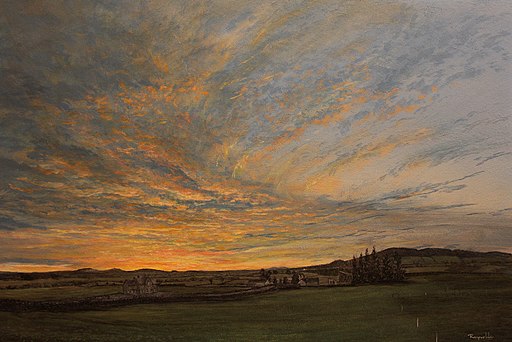
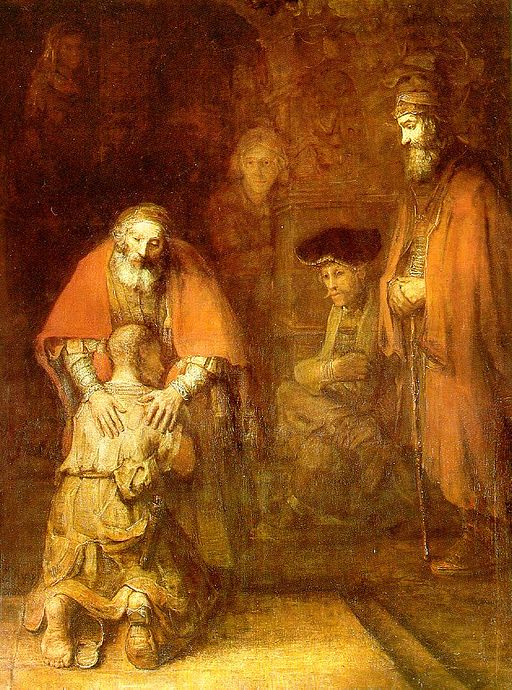
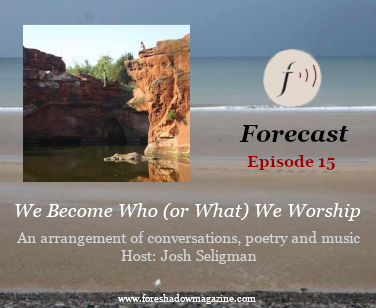
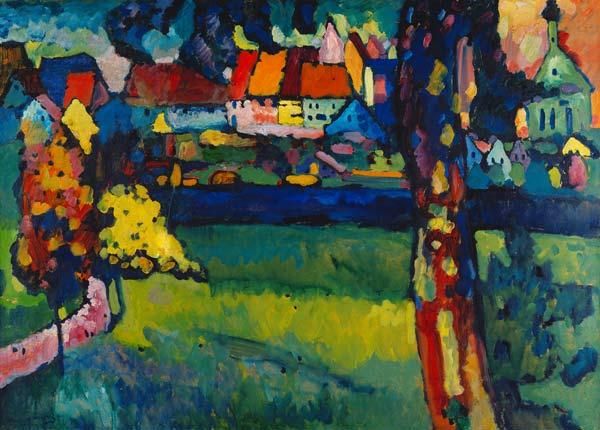
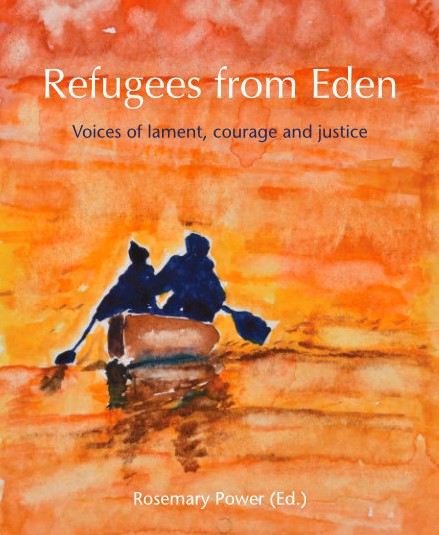
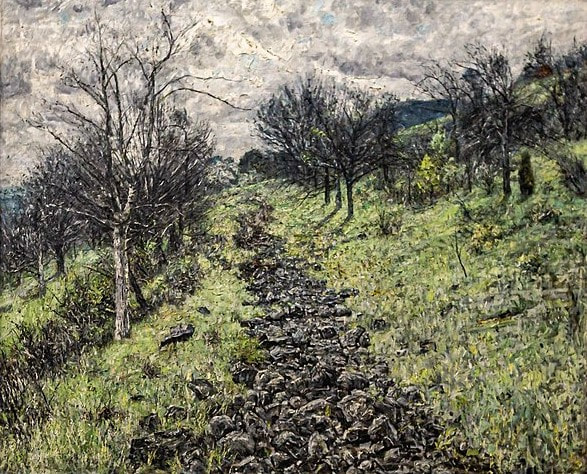
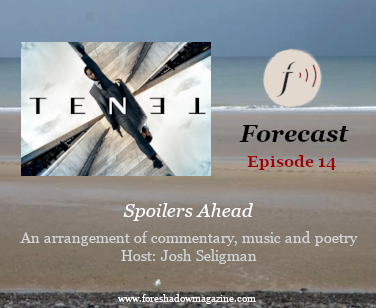
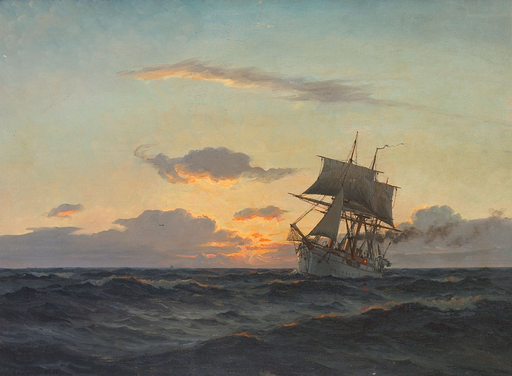
 RSS Feed
RSS Feed
